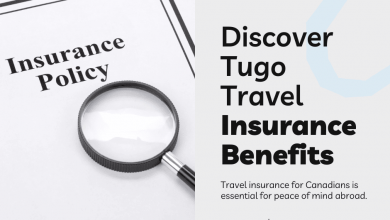Australia is a popular destination for skilled workers seeking visa sponsorship opportunities. While the country offers attractive benefits, understanding the cost of living is crucial for proper financial planning. In this guide, we’ll break down essential living expenses to help you budget effectively and make informed decisions about your move to Australia.
Housing Costs
Housing is often the largest expense for visa-sponsored workers in Australia. Costs vary significantly depending on location, property type, and proximity to city centers.
- Major Cities (Sydney, Melbourne, Brisbane): Renting a one-bedroom apartment in the city center costs between AUD 2,000 and AUD 3,000 per month, while similar properties outside the city range from AUD 1,500 to AUD 2,200 monthly.
- Regional Areas: Rental prices are generally lower, with one-bedroom apartments ranging from AUD 900 to AUD 1,500 per month.
- Shared Accommodation: Many workers opt for shared housing to reduce costs, averaging AUD 600 to AUD 1,200 per month per person.
Utilities
Utilities include electricity, gas, water, and internet. On average, you can expect to pay:
- Electricity and Gas: AUD 100–150 per month for a single person or AUD 200–300 for a family.
- Water: Often included in rental agreements but can cost around AUD 20–50 monthly if not included.
- Internet: AUD 60–100 per month for high-speed connections.
Transportation
Public transportation in Australia is reliable and efficient, but costs vary by city and region.
- City Transport (Bus, Train, Tram): Monthly public transport passes cost between AUD 120 and AUD 200.
- Car Ownership: Owning a car involves additional expenses such as fuel (AUD 1.90 per liter), insurance (AUD 60–120 per month), registration fees (AUD 800–1,200 annually), and maintenance (AUD 500–1,000 annually).
Food and Groceries
Food expenses depend on lifestyle and dietary preferences. Here’s a general breakdown:
- Groceries: AUD 100–200 per week for a single person; AUD 250–400 for a family of four.
- Dining Out: Meals at inexpensive restaurants cost around AUD 15–25, while mid-range dining for two averages AUD 70–100.
- Specialty Groceries: Imported or organic products may cost significantly more.
Healthcare
Visa-sponsored workers in Australia are often eligible for Medicare, the country’s public healthcare system. However, some may require private health insurance depending on their visa type.
- Medicare: Covers most basic healthcare needs, often free or at a minimal cost.
- Private Health Insurance: Ranges from AUD 100 to AUD 250 per month for singles and AUD 300–600 for families.
Education
For families moving to Australia, education costs are a vital consideration.
- Public Schools: Free or low-cost for visa-sponsored workers, though some fees (AUD 300–500 annually) may apply.
- Private Schools: Tuition fees range from AUD 5,000 to AUD 20,000 annually per child.
- Childcare: Costs vary widely, from AUD 80 to AUD 150 per day.
Miscellaneous Expenses
These include entertainment, clothing, fitness memberships, and other lifestyle costs:
- Entertainment: AUD 50–100 per outing.
- Gym Memberships: AUD 50–120 per month.
- Clothing: AUD 40–150 for casual wear.
Taxes and Savings
Australia’s progressive tax system means higher earnings result in higher tax rates.
- Income Tax: Ranges from 19% to 45%, depending on income level.
- Superannuation: Employers contribute at least 11% of your salary to retirement savings.
Tips for Managing Costs
- Choose Regional Areas: Living in smaller cities or towns can reduce housing and overall expenses.
- Use Public Transport: Avoid car ownership if public transportation is accessible.
- Shop Smart: Buy in bulk and look for discounts at local markets.
- Opt for Shared Housing: Sharing accommodations can significantly cut rental costs.
- Leverage Healthcare Options: Utilize Medicare and research affordable private insurance plans.
Final Thoughts
Understanding the cost of living in Australia is essential for visa-sponsored workers to make a smooth transition. While the expenses may seem high, careful budgeting and financial planning can help you make the most of this opportunity. The country’s high quality of life, excellent public services, and economic opportunities often outweigh the costs, making Australia an attractive destination for skilled professionals.




